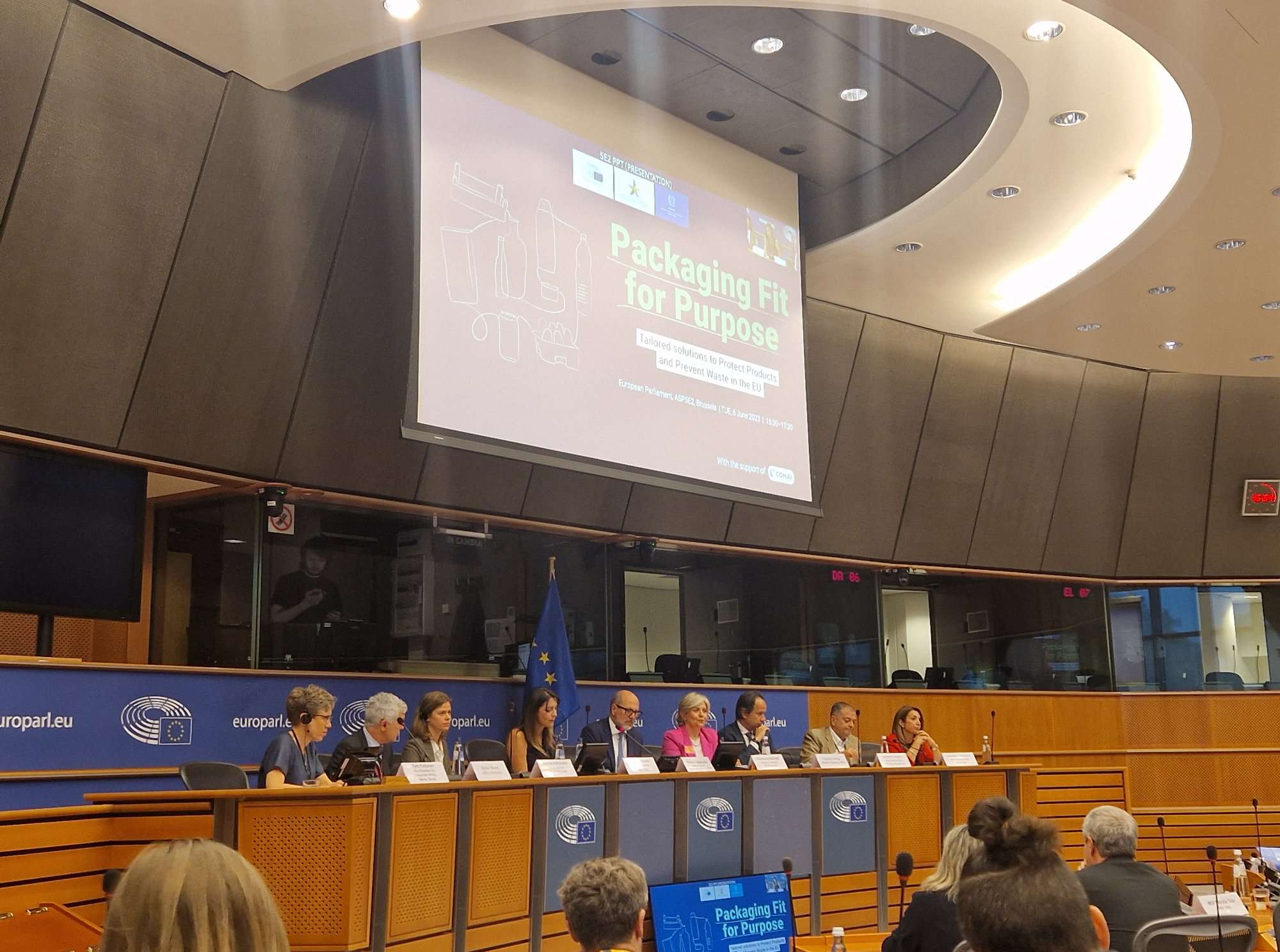
Second from right, Roberto Ferrigno, Head of Public Affairs at EUBP
The Packaging and Packaging Waste Regulation (PPWR) has been a very important file for a lot of industries, and the polymers industry in particular, as a lot of packaging is indeed today made of plastics. It is with no surprise that every actor of the biopolymers industry, including European Bioplastics, has been following this file very closely since the very beginning and has been actively involved in reaching out to stakeholders. With one purpose: to make sure the regulation will be a fair and positive political framework in which innovation will be sustained, circularity will be promoted, and the targets of the EU Green Deal will be reached.
What has happened since the Rapporteur, Frédérique Ries (BE, Renew), gave her first remarks in the European Parliament on 4 May in the ENVI Committee?
The PPWR file has been very active the last month, with both lots of compromise amendments in the European Parliament and a Working Party discussing the file in the Council.
After the tabling of 2741 amendments in the lead Environmental Committee, the Rapporteur and Shadow Rapporteurs have been very busy in negotiating compromise amendments. Consensus seems not easy to be found, as the PPWR file is technical and puts a lot of interest around the table, but Rapporteur Frédérique Ries seems to stick to her own guns for now.
Talk in town is that all Parliamentary Committees working on the file (ENVI, ITRE, IMCO and AGRI) will take longer to come to an agreement, but for now the original timing has not moved: the plenary vote is scheduled for 2 October.
The Council also tried to accelerate its work under the Swedish Presidency and ended the Presidency with an Environmental Council Working Party on 22/23 June. The Council is divided, and a lot of topics of the proposed PPWR are still under discussion.
What is interesting for European Bioplastics, and the bioplastics industry as a whole, is that the latest Swedish Steering note seems to give a role to biobased content as an alternative to fulfil the recycled targets as described in Article 7 of the proposed PPWR.
European Bioplastics has been very active in its outreach to MEP’s, the Permanent Representations and the Commission, but has also been actively building alliances with other stakeholders such as EUBA (European Bioeconomy Alliance) and others as for example EUROPEN and CEFIC.
Our very own Roberto Ferrigno, Head of Public Affairs, participated to a panel discussion in the European Parliament on 6 June, on the theme “Packaging Fit for Purpose” during which he reiterated EUBP’s main positions on the PPWR file, emphasizing the role bioplastics can play in achieving our common climate goals, the EU recycling goals, and their innovative role.
The summer break should pave the way for a very intense rentrée with stakeholders and EU officials ready to dive back into the debate.